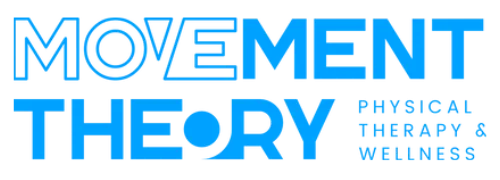If it’s your first visit with Movement Theory then you’ve likely been engaging with us on social media, with free guides or through email, possibly phone calls as well. You will have either opted to fill out paperwork in our HIPAA-compliant EMR, either on your phone or at pteverywhere.com. The other option is you filling it out in person which would take on average 10 minutes or so.
We currently have our primary office in Panther City Strength which is a private gym in Fort Worth. The doors will be locked, so unless otherwise stated there will be someone watching for you at your scheduled time to let you in the doors. We will be in a private treatment room discussing your case, helping to answer any questions you have about your specific case. If you’ve gone to a physician and have been given a diagnosis or have any imaging we can go over those reports too. It’s been my experience that most people don’t have a good understanding of their images and what everything means. There’s usually a natural break in the conversation where the rest of the pieces need to be found through assessment and movement. The whole time there should be discussion, what you feel and think all play a vital role in recovery, so if you are trying to “make things easy” by not saying something then you may be doing yourself a disservice! (If that sounds like you – we want to schedule a FREE Discovery Visit with us so we can help you understand – $0 – All it takes is your time)
Your therapist will be educating you on the outcomes of any tests, comparing your values to normal levels or ranges for your population (age/condition). They will go over what’s the issue if you’re fresh off the streets and haven’t seen another provider, and they’ll give their interpretation of whatever medical diagnosis you have. (Is a PT trained for that?) Physical Therapists cannot make a medical diagnosis, only a PT diagnosis.
-
Med dx = You have arthritis
-
PT dx = You have trouble walking and performing daily tasks secondary to knee pain likely from degenerative changes and inflammatory conditions.
At this point your therapist likely has a good idea of what’s going on and what things you can work on to improve the symptoms. There’s a large variance in conditions and everyone responds differently to 1. the same injury, but also, 2. the treatment to said injury. We are all on our own boat floating in the same vast ocean, so there will be similarities/patterns with cases between people, but ultimately the plans of care should be tailored to specifics of the particular patient’s daily life. The ultimate goal at Movement Theory is to MOVE; get the body feeling great and then load it up! If that sounds scary to you I want to personally invite you out to the gym to meet the wonderful community that Panther City Strength has created – full of motivation and peers-uplifting-peers.
My philosophy on day 1 is to get a great history, baseline function and find 1-2 things that my patients can do at home with the tools they have to bring on short-term relief while we work for the long-term. Most sessions will range from 45-75 minutes with a healthy average at 60 minutes. This is all dependent on your needs however – the one exclusion to this time frame is if you are only seeing us for Dry Needle Therapy. Since it’s still considered Physical Therapy we will have to do an evaluation prior, but these sessions typically last around 30 minutes.
Our goal here at Movement Theory is to be able to make a relationship so that you, your family, friends and those downline from you all have a place you can trust your health with and find free resources to improve your quality of life.



